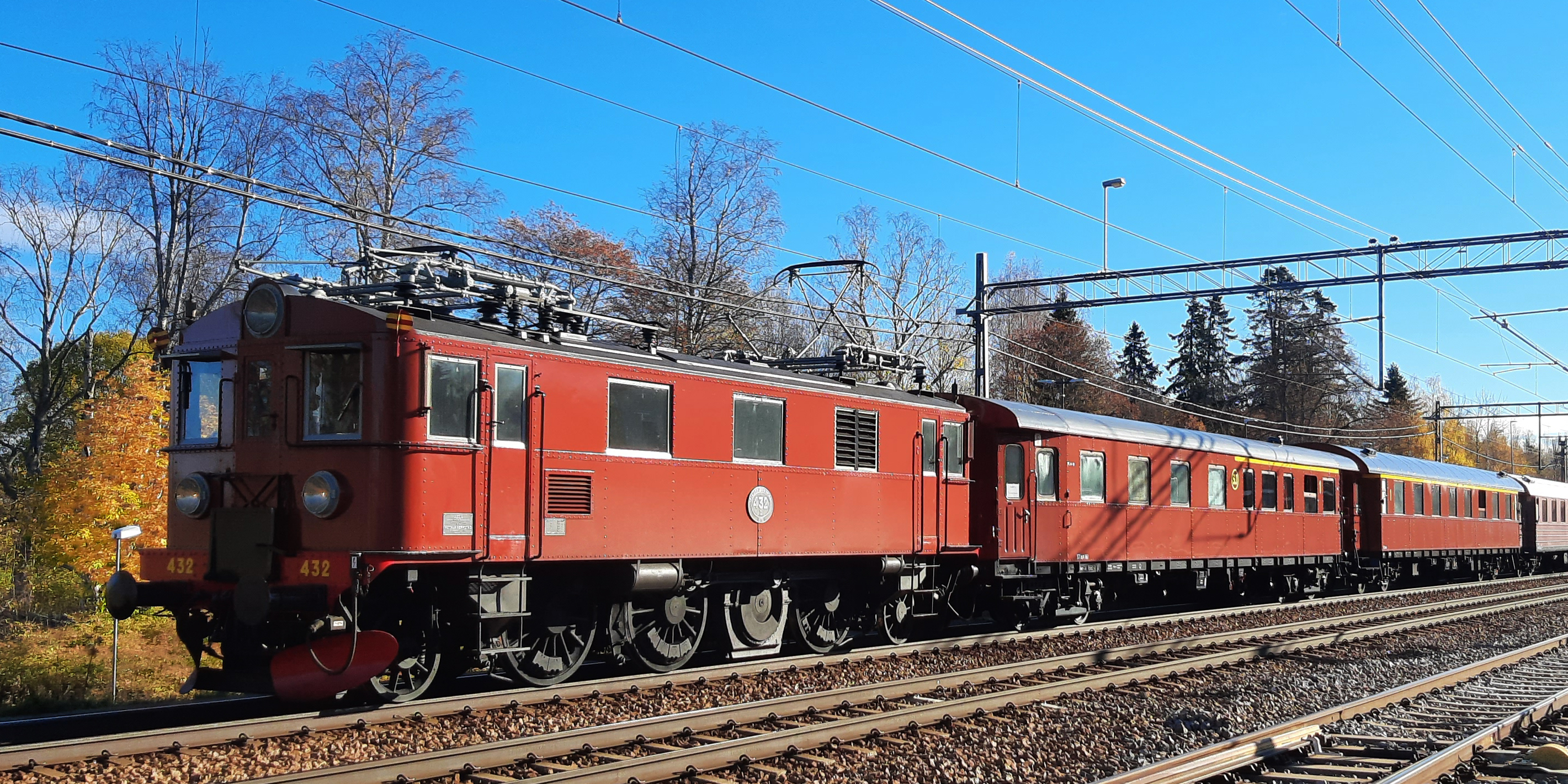
Electric locomotive D 432
Electric locomotive D 432 was manufactured in 1936. It was part of a series of 333 locomotives produced by SJ and the private railways Bergslagarnes Järnväg and Dalslands Järnväg between 1925 and 1943.
The locomotive was the first all-round electric locomotive that could be used in both passenger and freight trains. The predecessor to 432 is D 101, which is on display at the museum. The main difference is that the 101 has a wooden body, while the 432 has a steel body. This model of locomotive was used throughout Sweden, with the last ones being taken out of service in the 1980s. The Da locomotive that was introduced in the 1950s was its successor.
A distinguishing feature of this model of locomotive is that the power from two drive motors is driven via a blind axle, i.e. a wheel that does not reach the rails, and then through coupling rods to three drive axles.
The locomotive was preserved in the 1980s by the association Ostkustbanans Vänner (OKBv) in Sundsvall, who restored the locomotive to the condition it had in the 1930s and 1940s at the workshop in Ånge.
The Swedish Railway Museum acquired the locomotive in 2012, and it was equipped with Automatic Train Control (ATC) in 2016.
Manufactured
ASEA and Motala Verkstad, 1936
Length
13 metres
Weight
80.4 tonnes
Engine power
2,500 hp
Maximum permitted speed
100 km/h